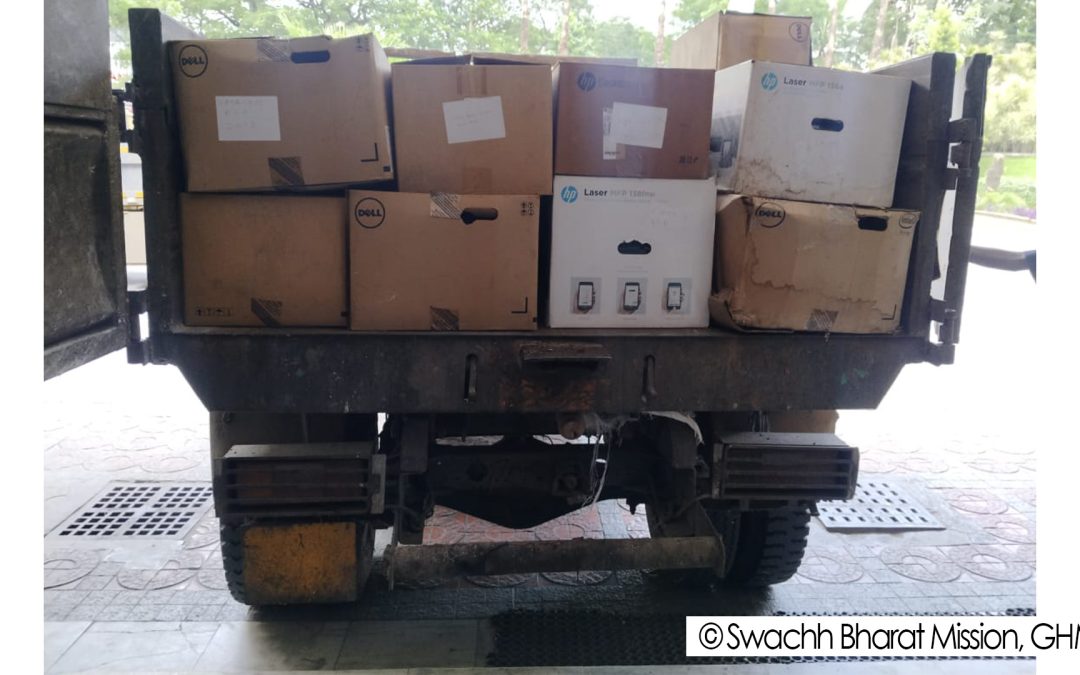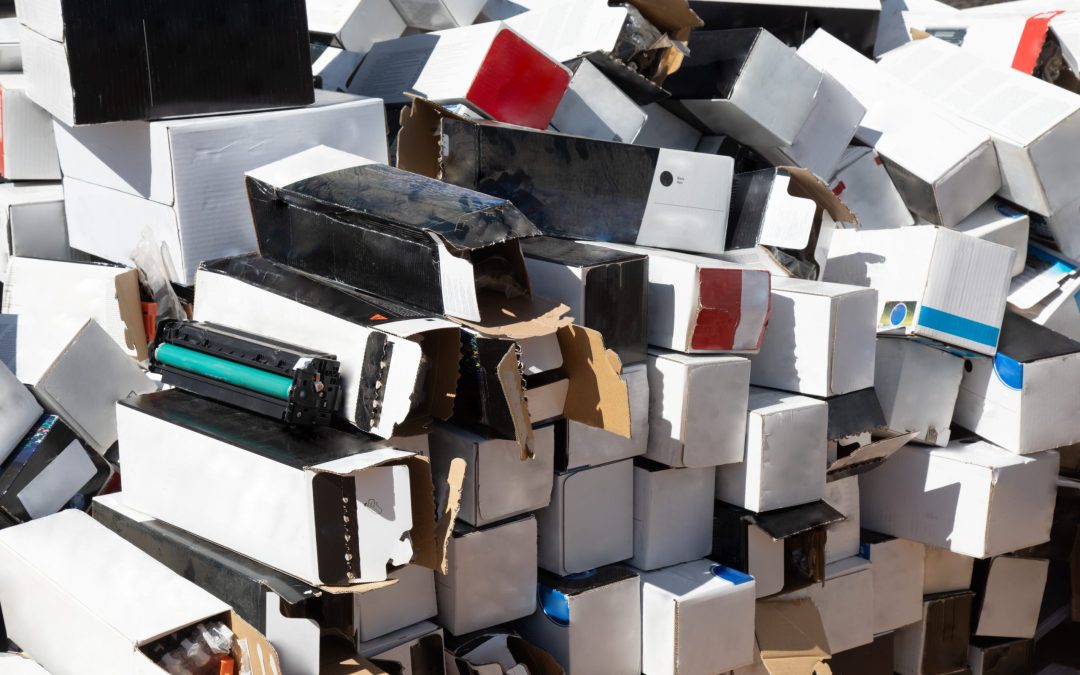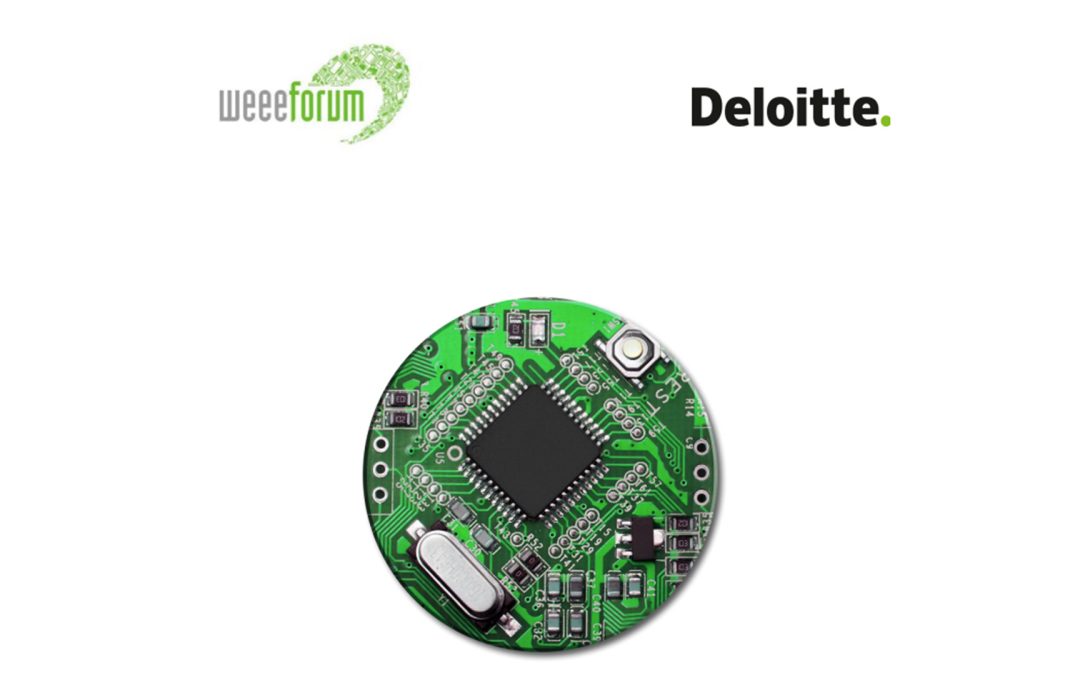 Basel Action Network, the global environmental watchdog, has released the findings of its two-year study, showing illegal exports of WEEE from Europe to Africa and Asia.
Basel Action Network, the global environmental watchdog, has released the findings of its two-year study, showing illegal exports of WEEE from Europe to Africa and Asia.
The study, taking place in 10 countries within the EU, followed 314 old computers, printers and monitors using GPS trackers.
This equipment was then delivered to places where consumers are expected to take their waste, most often government-approved takeback stations. BAN found that 19 (6 percent) of the tracked scrap equipment was exported, including 11 “very likely illegal” shipments to the countries of Ghana, Hong Kong, Nigeria, Pakistan, Tanzania, Thailand, and Ukraine, outside of the EU.
The new report, Holes in the Circular Economy: WEEE Leakage from Europe, estimates that the flows discovered with figures regarding WEEE generation in Europe, if extrapolated, would total 352,474 metric tonnes per annum, moving from the EU to developing countries. This amount could fill 17,466 large-size intermodal shipping containers. If they were loaded onto trucks, the trucks would stretch back-to-back for 401 kilometres.
“It appears that we have discovered a very significant stream of illegal shipments of hazardous consumer electronic scrap to vulnerable populations,” said BAN Director Jim Puckett. “This flies in the face of EU claims to make continuous efforts to implement a circular economy which can only responsibly exist by eliminating externalities and leakage from the system.”
Of the 10 countries studied (Austria, Belgium, Denmark, Germany, Hungary, Ireland, Italy, Poland, Spain, and the UK), all countries excepting Hungary were involved in exports. The UK was the worst violator with 5, with most of those going to Africa. Italy, Germany, Spain, Ireland, and Poland were also implicated in allowing shipments to developing countries. BAN subsequently visited some of the destinations.
In those locations BAN found that the e-waste was often subjected to substandard, dangerous recycling operations involving worker exposure and community pollution with smashing, burning, melting, or chemical acid stripping methods used to extract copper, gold, steel, and aluminium. While some of the equipment was repaired for further use, even in these cases, toxic parts containing substances such as mercury, lead, and brominated flame retardants which could not be reused, were discarded or burned in local dumps.
BAN asserts that leakage of this significance perpetuates an EU waste management regime on the backs of the poor and vulnerable. This would be directly contrary to the originally envisaged “circular economy” which can only responsibly exist by eliminating externalities and leakage from the system.
BAN fears that “recent efforts by the electronics manufacturers (Digital Europe), and the EU doing their bidding to create a “Repairables Loophole” in the Basel Convention, will allow a tsunami of broken, low-value electronic scrap to flow from Europe,” undermining the original intent of the Basel Convention, and spelling the death knell for a circular economy.
“There is far too much bemoaning illegal exports, while at the very same time, the EU is hypocritically works to make such dangerous exports legal. The answer to criminal activity is not legalizing that activity but rather improving enforcement to ensure the future health of Europe is not dependent on poisoning the rest of the world,” Puckett said.
BAN is recommending an enhanced effort in the EU to enforce its Basel Convention treaty obligations and a re-visitation of its Circular Economy policies to ensure elimination of exploitive externalities.






















